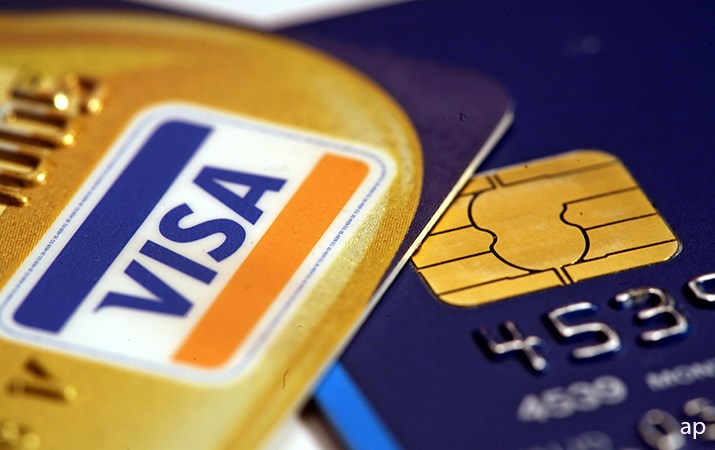
Almost every aspect of life is being disrupted, from the way we shop to how we book our holidays. Usually this means more choice and better prices for consumers, but some companies are being left behind while others thrive. We look at some of the sectors being shaken up – travel, payments, and cybersecurity – and consider the trailblazers set to profit from disruption in their field, and those that are being left behind.
Travel
Thomas Cook’s demise after 178 years of trading highlighted how much the internet has disrupted the travel sector. It’s now easier than ever to book your own bespoke trip online without using an agent or having any human interaction until you board the plane or check into your hotel. But the success of start-ups like Secret Escapes, owned by Old Mutual Global Investors among others, suggests that the sector can still be highly profitable if you find the right niche.
Leaders
TripAdvisor (TRIP)
Morningstar Rating: 5 stars
1 Year Return: -45%
Share Price: $30
Morningstar Fair Value Estimate: $51
Reputation is everything in ecommerce, and few online reviews carry as much weight as those on Nasdaq-listed TripAdvisor, which can make or break a hotel, restaurant or even resort. TripAdvisor's key advantage is it brand network effect - because so many people use the site already, this attracts more people to use it in future – and a recent share price dip has pushed it to a five-star Morningstar rating.
On the Beach (OTB)
Morningstar Rating: n/a
1 Year Return: 9%
Share Price: 460p
Morningstar Fair Value Estimate: n/a
One trend in travel in recent years has been specialisation, and that has benefited the likes of online package holiday expert On the Beach. Unlike firms like Thomas Cook and Tui, On the Beach doesn’t have the burden of running high street chains and an expensive fleet of aircraft.
Laggards
IAG (IAG)
Morningstar Rating: n/a
1 Year Return: 7%
Share Price: 646p
Morningstar Fair Value Estimate: n/a
Strikes at IAG-owned British Airways have hit customer satisfaction levels for the UK flag carrier, while the unexpected departure of IAG boss Willie Walsh after 15 years with the wider company adds an element of uncertainty as the airline industry faces up to a tricky period, which has seen the future of FlyBe in doubt.
Tui (TUI)
Morningstar Rating: n/a
1 Year Return: -19%
Share Price: 926p
Morningstar Fair Value Estimate: n/a
Well-capitalised Tui should benefit from Thomas Cook's demise, but as an owner of costly assets - travel agents, hotels, airlines - it faces the same challenges as the now defunct UK travel operator, especially with geopolitical tensions rising.
Cybersecurity
With more and more people now online worldwide, the need for anti-virus software has never been greater. But big companies face even scarier risks than the average smartphone user: they live in fear of cyber attacks, phishing and viruses bringing down their networks. Even government sites have been hacked. Currency retailer Travelex was paralysed by a ransomware attack on December 31 that lasted more than two weeks as hackers demanded nearly £5 million to stop releasing card details into the public domain.
Leaders
Palo Alto Networks (PANW)
Morningstar Rating: four stars
1 Year Return: 23%
Share Price: $240
Morningstar Fair Value Estimate: $305
Cybersecurity firm Palo Alto Networks made its name as a provider of firewalls and has since branched out offering subscriptions and support for “threat-prevention” services for business. The company has built up a loyal customer base, becoming the market leader in network firewalls. With a renewal rate of nearly 100%, these users are now unlikely to switch providers. The industry itself will continue to expand as cyber threats increase and become increasingly sophisticated. Morningstar analysts rate Palo Alto Networks assign a “narrow moat”, and think the shares are currently around 25% undervalued.
Avast (AVST)
Morningstar Rating: n/a
1 Year Return: 74%
Share Price: 512p
Morningstar Fair Value Estimate: n/a
Many computer users find anti-virus software such as Norton, Kaspersky and McAfee bundled in with new laptops and leave it installed. Czech-based Avast has tried to disrupt this market by offering cheaper software than the incumbents, greater discounting on renewal and a wider range of services: ranging from a basic "freemium" package that doesn't expire to more advanced options. Its software is ranked more highly by users and tech experts than the big names. Private equity firm CVC bought a stake in Avast in 2014 that valued the company at $1 billion. Avast listed in London in 2018 at 250p and since then the company’s shares have more than doubled to around 518p.
Laggards
Royal Bank of Scotland (RBS)
Morningstar Rating: 3 stars
1 Year Return: -1%
Share Price: 230p
Morningstar Fair Value Estimate: 272p
Banco Santander (BNC)
Morningstar Rating: 4 stars
1 Year Return: -18%
Share Price: 309p
Morningstar Fair Value Estimate: 440p
The UK banking industry is plagued by IT failures and is vulnerable to cyber attacks. Banks are key targets for hackers because their sprawling legacy networks are hard to protect completely, and with millions of customers online every day, there are plenty of access points for criminals: 2018 saw a co-ordinated cyber attack on seven UK banks, the National Crime Agency revealed.
Payments
The adoption of contactless payments in UK has been so swift that it’s hard to remember a time when you couldn’t just tap to pay for a coffee. But the rate of development towards a cashless society is not so fast everywhere in the world; parts of Europe still prefer notes and coins while the US has only recently introduced chip and PIN. This an example of an industry where incumbent players such as Visa and Mastercard have the advantage over new entrants, not least because they have invested the money in developing the technology in the first place. Morningstar analyst Brett Horn notes: “Visa is a somewhat unique company in that it is a long-time, established market leader that still enjoys strong growth prospects.”
Leaders
Visa (V)
Morningstar Rating: 2 stars
1 Year Return: 42%
Share Price: $195
Morningstar Fair Value Estimate: $166
Visa has an enviable business model, taking a cut of every contactless transaction that is made on one of its terminals. The firm is highly rated by Morningstar analysts, who assign it a “wide economic moat” because of its scale - along with rival Mastercard, analyst Brett Horn says Visa’s dominance is “unassailable” but a strong price surge last year means it is already highly valued.
Paypal (PYPL)
Morningstar Rating: 2 stars
1 Year Return: 26%
Share Price: $114
Morningstar Fair Value Estimate: $94
Paypal's association with eBay over the years make it a familiar name for internet shoppers, who enjoy the security and convenience of using its systems over manually entering in their card details to make a purchase online. Morningstar analysts think this first-mover advantage in the early years of e-commerce will stand it in good stead, especially as electronic payments are expected to grow significantly in the coming years.
Laggards
De La Rue (DLAR)
Morningstar Rating: n/a
1 Year Return: -66%
Share Price: 142p
Morningstar Fair Value Estimate: n/a
One of the world's largest banknote makers has struggled to adapt to the changing payment landscape. A major blow to the business came last summer when it lost the contract to print UK passports, and shares fell 20% in October 2019 after a profit warning.
NCR (NCR)
Morningstar Rating: n/a
1 Year Return: 36%
Share Price: $34
Morningstar Fair Value Estimate: n/a
Cash machine manufacturer NCR has a dominant position, especially in the US, but changes to the way we use money will inevitably have an impact on companies involved with the cash economy. NCR is doing its best to innovate and stay relevant though, and has even developed a cash machine system which allows customers to withdraw cash without having their bank card on them, using a six-digit code instead.































